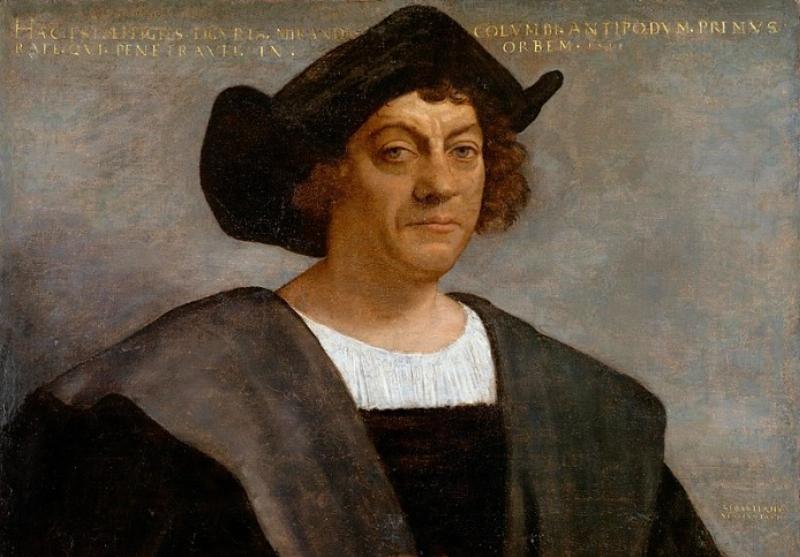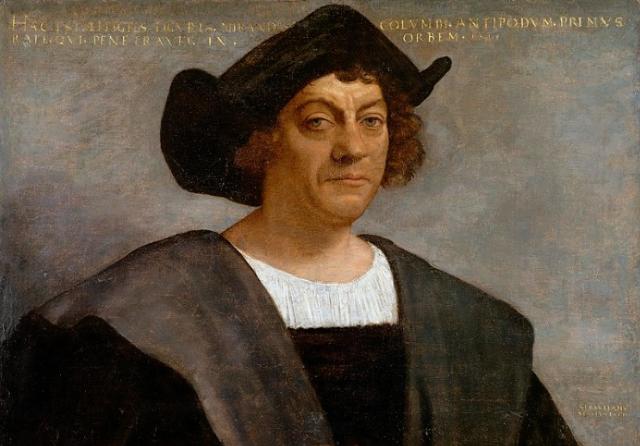


Each October, Americans confront a paradox. We commemorate Christopher Columbus, a man long hailed as the greatest explorer of the Age of Discovery, while increasingly vilifying him as a symbol of colonial oppression. Statues fall, cities rename streets, and Columbus Day gives way to Indigenous Peoples’ Day. But beneath this cultural shift lies a deeper philosophical question: Are we judging the past fairly?

Public domain (cropped).
Columbus’s voyage in 1492 was nothing short of revolutionary. At a time when many experts believed the Atlantic led to nothing, he defied consensus, persuaded a reluctant monarchy, and sailed west with three ships, the Nina, Pinta, Santa Maria, and a restless crew. Ten weeks later, on October 12, 1492, land was sighted, and Columbus was right. The experts were wrong. And the world changed forever.
For centuries, Columbus was celebrated for his daring and his vision. His name adorned universities, cities, and monuments. He was the embodiment of Western exploration and ambition. But today, that legacy is under siege, not because new facts have emerged, but because our moral lens has shifted.
This phenomenon is known as presentism: the tendency to interpret historical figures through the values of the present. It’s a seductive impulse, one that allows us to feel morally superior to those who came before. But it’s also a dangerous distortion. Columbus did not invent slavery. He did not create conquest. These were norms of his time, practiced across continents and cultures for millennia. To condemn him without context is to erase the very journey of human moral progress.
Civilization evolves. What was once accepted (e.g., slavery, patriarchy, and conquest) is now condemned. That evolution is a triumph of human conscience. But it also demands humility. We must remember that history is not a courtroom. It is a mirror. In Columbus’s reflection, we see both the darkness we’ve outgrown and the light that led us forward.
This is not a call to ignore the suffering his voyages unleashed. It is a call to balance. To acknowledge both the courage and the cost. To teach our children not just what happened, but why it mattered. And to resist the urge to flatten history into caricature.
Columbus was a man of his time. His greatness lay in his daring. His flaws lay in his humanity. And his legacy, like all legacies, deserves truth, not moral absolutism.
Today, I invite you to pause, not to celebrate blindly, nor to condemn reflexively, but to reflect. To reflect on a man whose voyage changed the course of history, and whose legacy now stands at the crossroads of admiration and accusation.
